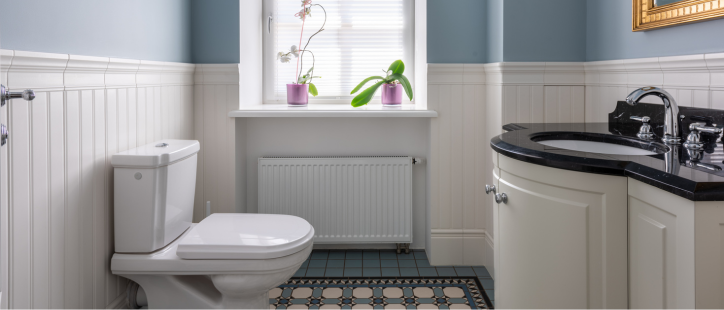When the strong winds blow, will you be ready? Hurricane season lasts from June 1st through November 30th, with peak activity occurring from late August through September. But hurricanes can form outside the normal hurricane season, so it is always good to be prepared. While you cannot control the weather, you can control how prepared you are for what it might bring. Here is a hurricane season preparedness plan to help make sure your pipes don’t go out of commission when it floods outside:
Turn Off Your Main Water Valve
The main water source is usually located near the water meter and can be shut off by turning a valve handle. If you’re not sure where the main water source is, or if you experience any difficulty turning it off, contact a professional immediately.
Look for Tree Roots
Tree roots can grow into and around your pipes and cause cracks or shifting in the soil surrounding them. If you have a tree near your plumbing lines, it’s best not to wait until hurricane season to get it trimmed back. Contact a professional to cut back any tree branches growing toward your home’s pipes or foundation as soon as possible.
Water Heater Maintenance
- Clean the pilot light. A clogged pilot light can cause a water heater to malfunction, so ensure it’s clean and clear before hurricane season arrives.
- Check the gas pressure. Is your supply line at a safe level? If not, contact a professional plumber to adjust it before storms arrive—it doesn’t take much for lines to get damaged during high winds and rainstorms.
- Check the temperature setting. If you’re using an electric water heater, be sure that your thermostat is set on “hot” rather than “warm.” This will help keep your tank from freezing in below-freezing temperatures during hurricanes or other extreme weather events like nor’easters (northern winter storms).
- Make sure there’s no moisture between walls and pipes by checking for leaks around faucets every few months—especially after any strong winds have passed through town!
Remove Debris from Gutters
It’s essential to make sure that gutters are clear of leaves and other debris before hurricane season starts. The worst thing you can do is let this build up over the course of weeks, especially if there was a big storm recently. The more water that gets into your roofing system, the more damage it will cause when a hurricane hits.
Test Your Sump Pump
In the event of flooding, a sump pump is an important piece of your home’s flood protection. A working sump pump will help you avoid basement flooding, which can cause severe damage to your home.
How to check that it is working:
- Confirm that the battery is charged and functional by checking its voltage with a voltmeter. It should be at least 12 volts; if it’s too low, replace it with a new one.
- Test the float switch by submerging it in water while watching for movement on an adjacent circuit tester as well as visually examining its operation when submerged in water—a good test means that no debris will impede its ability to operate correctly under normal conditions during a power outage or other emergency situation. Contact us immediately if any of these tests fail due to clogging from dirt or sediment buildup in pipes around the pump.
Contact Us
Hurricane season is here, and if you’re not prepared for it, your plumbing could end up taking a hit. We hope this hurricane season preparedness plan helps you for any potential storms. If you have any important plumbing repairs that need to be done before the storm hits, now is the time to do them! Call Maffei Services or schedule service online.


